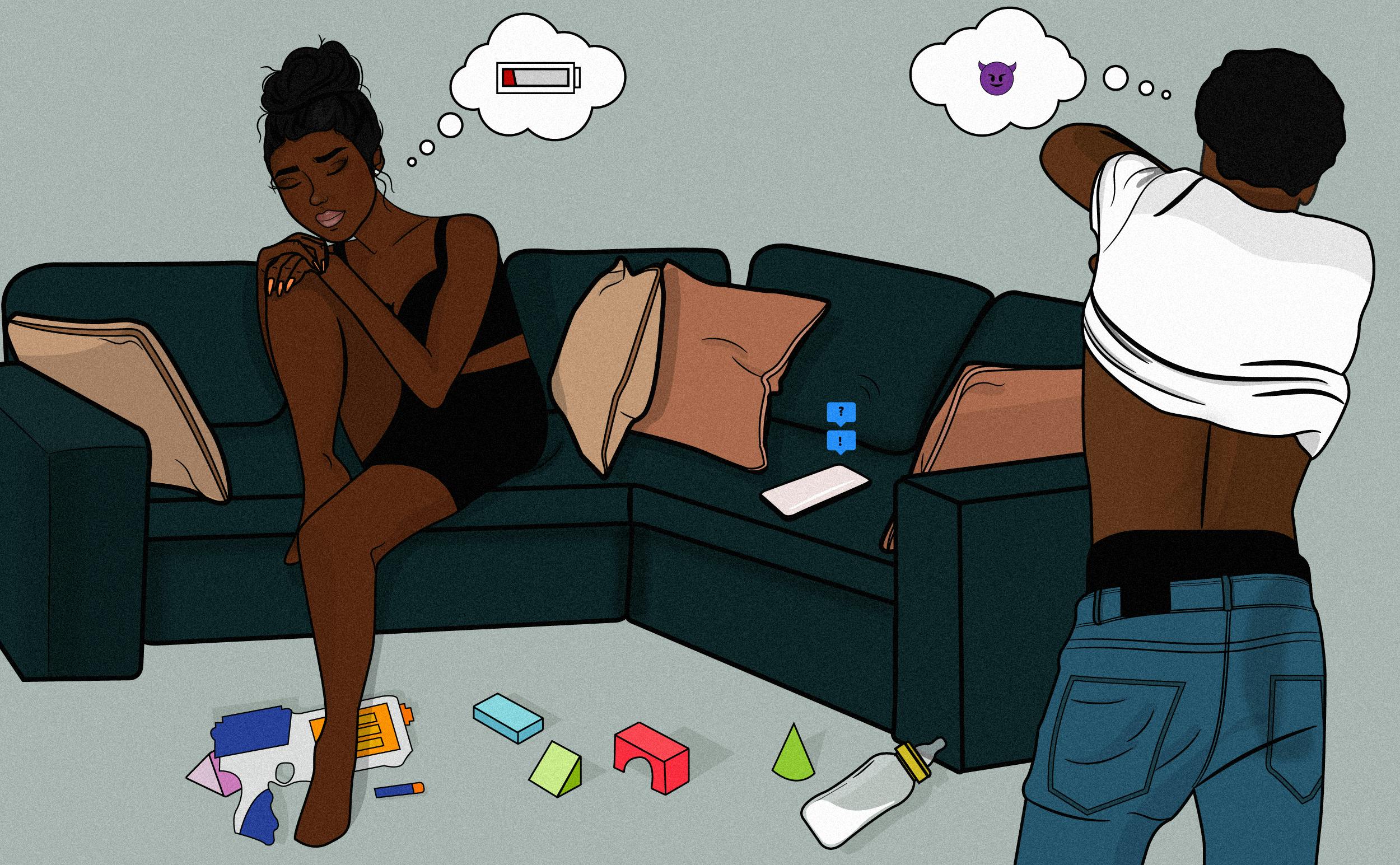Go Forward: Tackling Perinatal Mental Health Problems
Go Forward: Tackling Perinatal Mental Health Problems
As a mother and director of porn for women I have wanted to address this for a long time and I’m happy to announce that I have released an explicit sex documentary about sex and pregnancy featuring adult performer Tiffany Doll & her husband Bruno. In the upcoming weeks, the Erika Lust Blog will host a number of highly experienced women’s health and sexuality professionals to discuss everything around the topic of Pregnancy & Sexuality.
Over recent years, there has been a growing understanding that the transition to pregnancy and becoming a parent can lead to mental health struggles. In the past these were often lumped together under a diagnosis of post natal/ postpartum depression. We now understand that many women and their partners too can experience a wide range of difficulties – these may be diagnosable conditions or they may be a combination of difficulties. This has led to some researchers and clinicians suggesting that we move towards a broader scope with terms such as Perinatal Mood and Anxiety Disorders (in the U.S.) or the more general ‘perinatal distress’ (in the UK)
We know that around 15-20% of women will experience anxiety or depression in the perinatal period (the period encompassing pregnancy, birth and the first year of parenthood). Anxiety can be defined as a heightened sense of threat, a feeling that we need to work very hard to avoid something bad from happening. This is often felt in the body, with an increased heart rate, butterflies in the stomach, feeling hot and sweaty. We often develop strategies to help reduce these symptoms, such as over planning or seeking frequent reassurance. Depression, on the other hand, is often defined by a flatness in mood, feeling that things are no longer bringing you pleasure or joy. Some people experience depression as an increased feeling of anger and irritation. We might feel like hiding away from the world, and find it difficult to fulfill our usual tasks. Around 1 in 25 women experience post traumatic stress disorder during pregnancy or after birth (which is often misdiagnosed as post natal depression), and around a third of women find some aspect of their birth traumatic. Often if you have symptoms of trauma, you will notice intrusive thoughts or flashbacks about the traumatic experience (these may not be active thoughts but more of a sense, or a feeling too), you might have nightmares about the event. People often try and avoid thinking about or being reminded of the event, and will experience some associated mood changes such as increased vigilance, or a low mood. Less commonly, women experience more severe psychological problems such as severe depression or postpartum psychosis. This is not a comprehensive list and if you are interested in reading more, the UK National Health Service has a useful website about perinatal mental health problems.
Many (most?) people experience some difficulties in adjusting to pregnancy and parenthood. Symptoms are important but the most crucial thing to look out for is a difference in your usual functioning. Many women tell me that they ignored their symptoms for many months, thinking that what they were experiencing was just a normal part of becoming a parent. But if you are finding your daily life more of a struggle than you were expecting, or the people around you are expressing concern, then you might want to seek some additional support.
We also know that many (most?) of those people won’t talk to anyone about it. There is still a huge amount of stigma around admitting that we are not coping, and as parents this is exacerbated by worries about how others will perceive our abilities as a parent if we talk about our feelings. However, as a clinical psychologist working with parents, I can assure you that you are almost certainly not alone in your thoughts. If you do feel that you might be struggling with your mental health, it is really important to seek help as soon as possible. We can feel particularly vulnerable during this period of our lives, but we can also resolve these difficulties quickly (and are often highly motivated to do so).
So why is it that we are so vulnerable to mental health problems during this period? Aside from all of the physical changes we go through in this period – our hormones, our physical shape (and our relationship to that physical shape), any recovery that needs to occur after pregnancy and birth – we go through huge shifts to our sense of self, our identity, our relationships and our place in the world. All while being responsible for a new, wonderful and quite demanding little stranger.
Over the past couple of years, we’ve seen quite a cultural mind shift when we talk about mental health. In the UK, writers such as Johann Hari and others have demonstrated the links between isolation and mental health problems. This is something that applies particularly to new parents, who can suddenly find themselves isolated. Add to this the narrative that we have in Western culture that we are meant to ‘cope’, often alone, despite having never done this before. And the gap between how we feel and what we present to the world becomes ever greater. I believe it is often in this gap that mental health can start to decline. Just think about the stories we carry about how pregnancy, birth and parenthood will be. Ideas that it is natural, therefore will be easy. Or that it is going to be an ordeal but, as long as the baby is ok, we’ll be ok. And that motherhood is our ultimate aspiration as women. But that we should also prioritise our careers, relationships and appearance. All of these stories create an unsettled sense that we should be happy, but yet we’re not – therefore we often come to the conclusion that the unhappiness, fear, anger we feel must be our fault.
It is almost inevitable that these messages also impact on our relationships and sexuality. For many couples, pregnancy, birth and the post natal period can bring a time of transition for the relationship. When two become three (or more), the couple relationship naturally takes a lower priority. For whoever is primarily caring for the baby, the focus has changed – and feeling besotted with a new baby can sometimes leave the other partner feeling pushed out. Or, perhaps, both of you are besotted with the baby. This is not only common, but a necessary change which helps you tune in to your baby’s needs. If you have problems with your mood, or increased anxiety too, this can have an additional impact on your ability to connect with each other. As for sex, many of the physical changes we go through in the postpartum period can leave sex far from our minds. The hormones that continue throughout the postpartum period can lower libido and make sex uncomfortable without added lubrication. If we have had any injury related to birth, we can feel very disconnected from our bodies and understandably anxious about resuming any sexual contact. And there is a psychological shift too – again our cultural narratives of women as either ‘Madonna or whore’ can leave us feeling uncomfortable about our sexual desire. Taking the pressure off sex and focusing just on maintaining a sense of connectedness can be a really helpful goal in the postpartum period. And talking about the changes you are going through together, and your feelings about your relationship, can ensure that you remain close even if sex is off the cards for the time being.
Once we begin to truly support women on their journey to motherhood, we can make this transition easier. One simple way we can do this is by sharing the many varied experiences of pregnancy and motherhood. One of the reasons that Erika’s film is so valuable is that it offers a different perspective on feminine sexuality during pregnancy, and a positive view of pregnancy, birth and the transition to motherhood. We only go forward, we don’t go backward.
Seeking Help and Getting Information
If you think that you might be experiencing a mental health problem, please speak to your healthcare provider.
Useful Resources:
GET A FREE MOVIE











